Many Owe Their Jobs to the Civil Rights Era
Now Is the Time to Strike:
Perfect Storm for Diversity Push in Network TV
Journal-isms Fund Drive Continues
[btnsx id=”5768″]
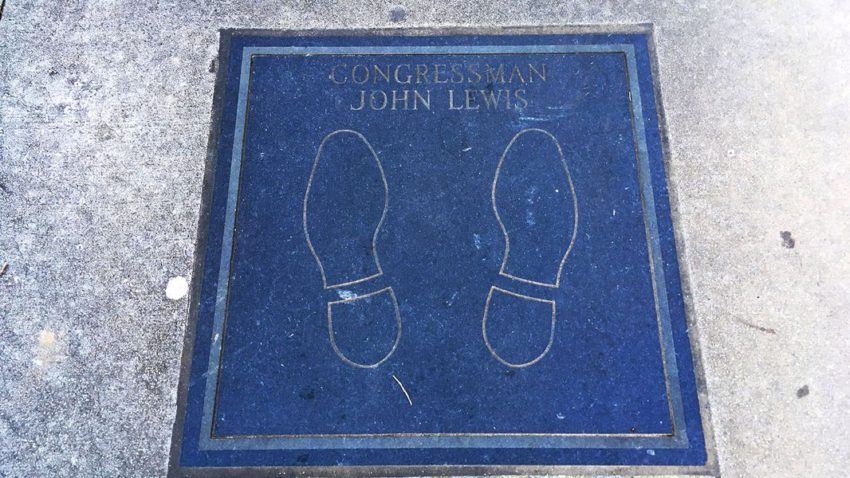
Many Owe Their Jobs to the Civil Rights Era
Journalists marked the death of civil rights hero John Lewis by citing his impact on their own lives as well as that of the nation.
“Damn. This breaks my heart,” Leonard PItts Jr., syndicated Miami Herald columnist, tweeted overnight.
“Covering someone whose work you personally respect so much is often deeply challenging,” wrote Washington Post reporter Eugene Scott. “When talking to @RepJohnLewis, I was always aware that so much of what I get to do every day of my life is because of what he did every day of his life.”
April Ryan, White House correspondent for American Urban Radio Networks, tweeted, “My heart is heavy that civil rights icon, my friend @RepJohnLewis has died. When writing my book #AtMamasKnee we spent intimate time together. A true champion for change, he fought & sacrificed for Black people to have the right to vote. A giant has landed his wings. #JohnLewis”
Many posted photos of themselves with Lewis.
Covering someone whose work you personally respect so much is often deeply challenging. When talking to @RepJohnLewis, I was always aware that so much of what I get to do every day of my life is because of what he did every day of his life. pic.twitter.com/ZmxRiVCUK7
— Eugene Scott (@Eugene_Scott) July 18, 2020
As Katharine Q. Seelye reported for the New York Times, “Representative John Lewis, a son of sharecroppers and an apostle of nonviolence who was bloodied at Selma and across the Jim Crow South in the historic struggle for racial equality, and who then carried a mantle of moral authority into Congress, died on Friday. He was 80.
“His death was confirmed in a statement by Nancy Pelosi, the speaker of the House of Representatives.
“Mr. Lewis, a Georgia Democrat, announced on Dec. 29 that he had Stage 4 pancreatic cancer and vowed to fight it with the same passion with which he had battled racial injustice. . . .”
By coincidence, Lewis died the same day as veteran civil rights leader the Rev. C.T. Vivian, who, among other accomplishments, was sports editor of the student newspaper at Western Illinois University.
It wasn’t only Black journalists who mourned Lewis’ passing.
Longtime CBS News anchor Dan Rather tweeted, “The news hits deep. And to the core. John Lewis dead. Can it really be? He had strength, courage, and heart enough for many lifetimes. We were young once. So many memories. So much distance traveled. So much further to go. Farewell my friend. We shall overcome someday.”
And Maggie Haberman, White House reporter for The New York Times, put the news in perspective from her vantage point. “It’s hard to ignore — the president hasn’t said anything about John Lewis on his Twitter feed but had done more than a dozen retweets of campaign aides and others about Biden, China, and so forth,” she tweeted at 12:51 a.m.
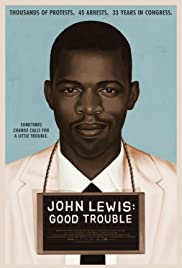
The Times and other large news organizations, such as The Washington Post, Time, The Wall Street Journal [paywall] and the Associated Press, as well as some television networks, had advance obituaries ready and began to post or broadcast them shortly after 11 p.m. Friday. The NPR obituary had three bylines: Kelsey Snell, Audie Cornish and Suzanne Nuyen.
The Atlanta media gave considerable attention to their hometown hero. The Atlanta Journal Constitution filled a page of its website with headlines about the Congress member born in neighboring Alabama. “John Lewis left footprints across metro Atlanta,” “Atlantans, Georgians mourn John Lewis on social media,” “John Lewis saw in gay rights a movement like civil rights,” “Lewis vs. Trump: antagonist until the end” and “A compilation of John Lewis’ best quotes and memorable moments” were some of those headlines.
Lewis’ passing also dominated the homepages of Atlanta stations WGCL-TV, WSB-TV, WXIA-TV and WAGA-TV.
In the Black press, the Atlanta Daily World delivered its own story by Roz Edward, unusual for a segment of the media that often lags on breaking news.
The lead story overnight in the Atlanta Black Star was, “Who Was Danroy ‘DJ’ Henry, and Why Jay-Z, Rihanna and Others Are Speaking Out 10 Years After He Was Killed By Police,” and in the Atlanta Voice, “United Way of Greater Atlanta announces ‘United for Racial Equity and Healing’ fund.” (The Voice later published the Associated Press obituary.)
On the national Black press website, blackpressusa.com, the main headline was, “Celebrities Make News on BlackPressUSA’s #FIYAH! Livestreams.”
On Twitter, talk-show host Tamron Hall posted a photo of herself with Lewis and mentioned a new documentary about him.
“The night in Harlem, he told the crowd we would see his story in a documentary film. It was a blessing to be at his side. Please see ‘Good Trouble.‘ He wanted to make sure the full history of his journey was left for us to see and learn. Thank you John Lewis.”
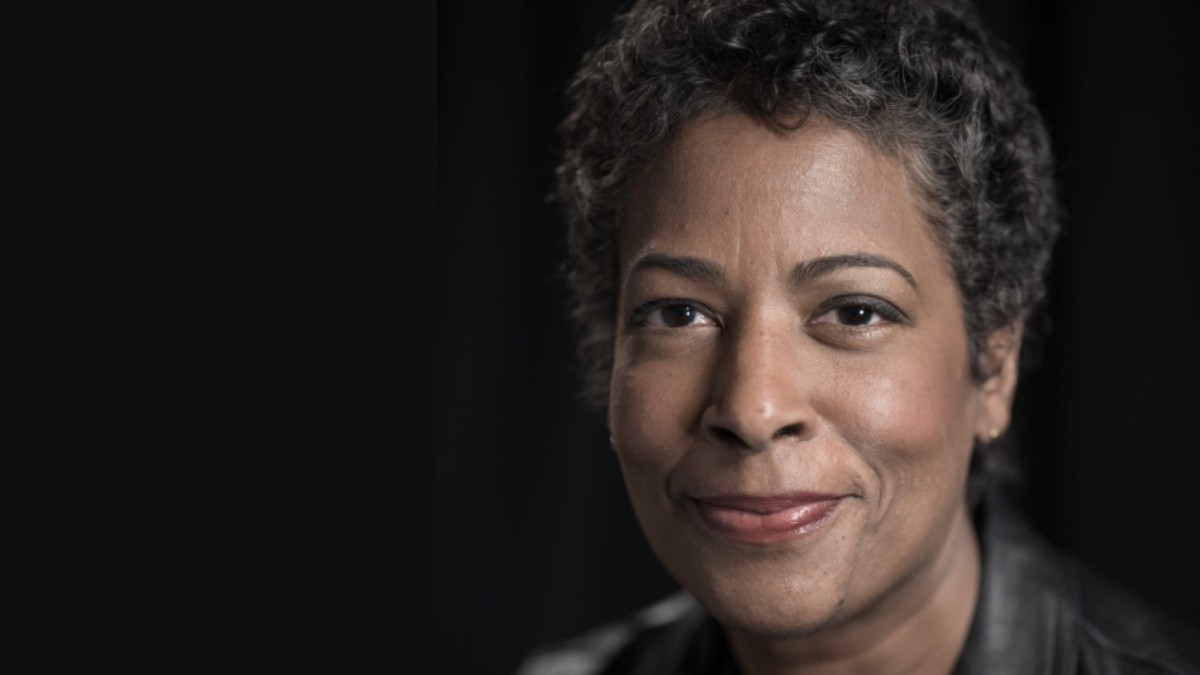 The reference is to a CNN film about Lewis produced by Dawn Porter (pictured) that debuted July 3, available in select theaters and on demand.
The reference is to a CNN film about Lewis produced by Dawn Porter (pictured) that debuted July 3, available in select theaters and on demand.
Ernie Suggs wrote June 24 in the Atlanta Journal-Constitution, “Porter said she had stopped filming long before Lewis’ announcement that he had cancer. She said she met him in his Washington apartment in February to show him the film, which she said he liked.
“ ‘I wanted to do it while he could enjoy it. I really wanted it to happen for him,’ Porter said. ‘When I went to his house, he answered the door all dressed up and asked if I wanted some tea. We had the loveliest afternoon. He cried while watching it and we sat and talked about nothing and everything.’
“Lewis said earlier this month that he was ‘humbled and honored’ by the film. . . .”
Suggs also wrote, “The film ends with Lewis in his office holding an official 2008 Barack Obama inauguration book. He tells the story of how at the inauguration, Barack Obama signed a program for him reading: ‘It’s because of you, John. Barack Obama.’
“Then, at the 2012 inauguration, Lewis recalled how Obama, who had already given him the Presidential Medal of Freedom, whispered to him: ‘It is still because of you.’ . . .”
Hero is too small a word for a man who served as the conscience of our nation. They beat him up on that bridge in Selma but they could not beat him down. He stayed humble. Stayed optimistic. Stayed ready. Stayed in the struggle. And we will stay forever grateful. Goodbye, Sir pic.twitter.com/sbq0Aostg9
— Michele Norris (@michele_norris) July 18, 2020
Journalists of color might say the same about Lewis and the entire civil rights era. In 1965, the same year as the Selma-to-Montgomery march, one of Lewis’ best-known moments, the Watts uprising took place in Los Angeles. The Los Angeles Times had to draft a Black advertising messenger, Robert Richardson, because it had no Black reporters.
Three years later, the presidentially appointed Kerner Commission, reporting on the uprisings, wrote, “the journalistic profession has been shockingly backward in seeking out, hiring, training and promoting Negroes.”
On Twitter, some of the beneficiaries of that movement remembered what has become Lewis’ most impactful battle.
June Cross, documentary producer and journalism professor at Columbia University’s Graduate School of Journalism, tweeted, “I weep for Congressman John Lewis. R.I.P.“
Robert A George, editorial writer at the Daily News in New York, tweeted, “Don’t cry. Vote.”
Writing in the Washington Post Saturday, Colbert I. King recalled a 2016 Lewis appearance before the Poynter Institute.
“ ‘I come here tonight to thank members of this great institution for finding a way to get in the way,‘ Lewis told us. ‘Finding a way to get in trouble, good trouble, necessary trouble’ is what journalists should be doing, he said.
“ ‘We need the press’ he said, ‘to be a headlight and not a taillight.’ “
All Latinos need to understand that the civil rights struggles of the 60s and today are OUR struggles too, and if not for brave men like John Lewis we would be looking at second class citizenship as a step up from our lot. https://t.co/FjUpfeO0Fc
— Rafael Olmeda (@rolmeda) July 18, 2020
“With great passion, Lewis left us with these words: ‘You must not give up. You must hold on. Tell the truth. Report the truth. Disturb the order of things. Find a way to get in the way and make a little noise with your pens, your pencils, your cameras.’ ”
- Todd Steven Burroughs, The Root: What a Comic Book Reveals About Why John Lewis Led a Congressional Sit-In (2016)
- Faith Karimi, CNN: The US loses two icons of the civil rights movement in one day
- David Remnick, New Yorker: John Lewis’s Legacy and America’s Redemption
- Ernie Suggs, Atlanta Journal-Constitution: C.T. Vivian, civil rights hero and intellectual, dead at 95
Now Is the Time to Strike
July 16, 2020
Perfect Storm for Diversity Push in Network TV
Journal-isms Fund Drive Continues
[btnsx id=”5768″]
Issa Rae, left, and Prentice Penny sit down with Amanda Seales on HBO’s “Insecure.” Eric Deggans said, “Folks like Lena Waithe and Robin Thede and Issa Rae are all trying to build networks of Black creative people and bring them along .” (video) (Credit: HBO/YouTube)
Perfect Storm for Diversity Push in Network TV
The nation’s racial reckoning and the coronavirus crisis have contributed to a perfect storm for advocates of diversity in network television entertainment, according to Eric Deggans, television critic at NPR.
“The good thing about this moment is that I feel like consumers have never had more power than they have now,” Deggans said at a Journal-isms Roundtable held via Zoom (video) on Sunday.
“You can say something on your Twitter page and you can include the Twitter handle of the showrunner, or the director or the lead actor, and it’s possible that person may actually see what you have to say — and it’s possible that thousands of other people may retweet it or agree with what you say.
“I’ve found again that because of the pandemic, actors and some producers have a fair amount of time on their hands, so they’re open to dialogue, and they’re paying attention to their social media feeds.”
Deggans also told the 46 attendees, with 190 more following on Facebook Live, “One thing the executives are afraid of, is becoming that show that everybody wants to cancel.
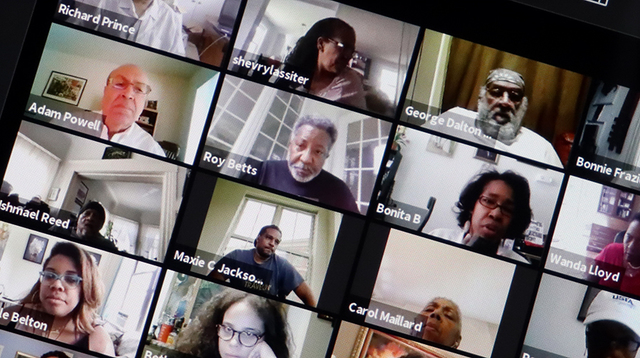
“They saw what happened to ‘Cops.’ They saw what happened to ‘Live PD.‘
“They’ve seen how people are re-evaluating cop dramas. And so anything that gives them the sense that they might become the next show to get canceled makes them nervous and makes them want to listen.
“The executive producers of ‘Survivor’ are meeting with two groups — at least two groups, maybe more, of Black people who have been on the show, alumni, and stepped forward just a couple of weeks ago to talk about how they feel like the show regularly stereotypes Black people and regularly makes it more difficult for them to win the game. And I don’t think that would have happened before this moment, because they are used to shrugging people off, and blowing people off if they don’t agree with the criticism.”
The day after the roundtable, Soraya Nadia McDonald reported for The Undefeated that, “CBS is committing at least 25% of its script development budget to creators and producers who are Black, Indigenous and people of color (BIPOC), starting with the 2021-22 development season, the network announced in a release on Monday.
“It has also set a goal for the upcoming 2021-22 television season that its writers’ rooms will be, at minimum, 40% BIPOC. That mandate will increase to 50% for the following 2022-23 season.
“It’s a significant change in network television that ought to have thunderous effects, not just at CBS, but in the entertainment world at large as Hollywood figures out how to make substantive change with regards to race.”
In addition, Kevin Draper reported the same day for The New York Times, “The nationwide conversation over systemic racism and equality has prompted a series of discussions and forums at ESPN, where Black employees, many of them behind the cameras, have begun speaking out about the everyday racism and barriers they face at the sports media giant. . . .”
Deggans went on to identify the behind-the-scenes managers who are making a difference on inclusion, named the up-and-coming creators of color who deserve our attention, and responded to a challenge that mainstream critics aren’t reporting enough about independent film and television producers who are more interested in portraying Black people accurately than buying into Hollywood stereotypes.
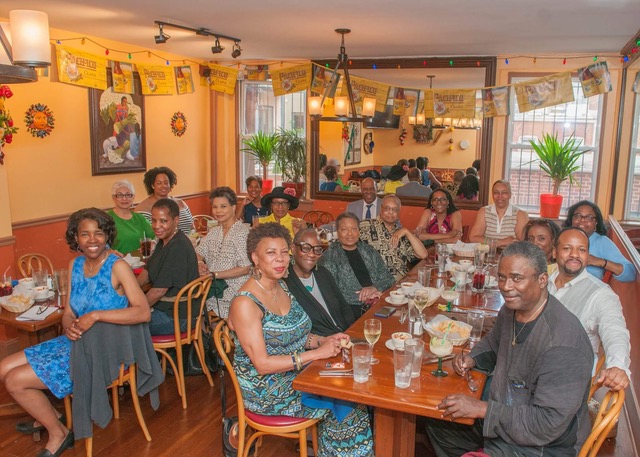
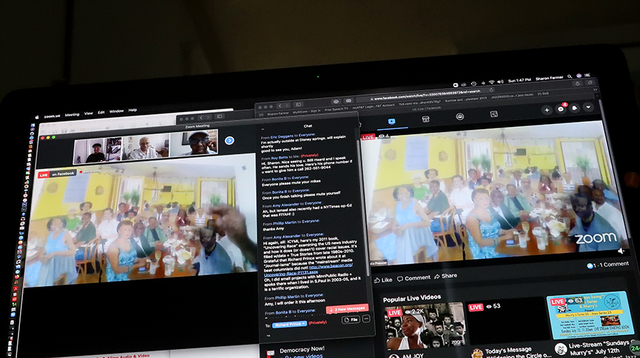
But before that, television news veteran Maureen Bunyan presented a first for the Roundtable group since it began in 1999: Artist Lola Poisson, a Haitian American friend of Bunyan’s, unveiled a 30×40 oil-on-canvas rendering of a group photograph taken at the April 2017 Roundtable session. Poisson said of the photograph, taken by George Dalton Tolbert IV, “The first time I saw the picture I fell in love with it. . . . I said, ‘Wow, this looks like a painting. I have to have it on my wall’.”
Attendees wrote in the chat box, “So beautiful, Lola!” “So I have to have this!” and “Wow!!! Magnificent, Lola!!”
The pandemic has halted much of television production, Deggans said, so it’s difficult to say how much change we’ll see once production resumes.
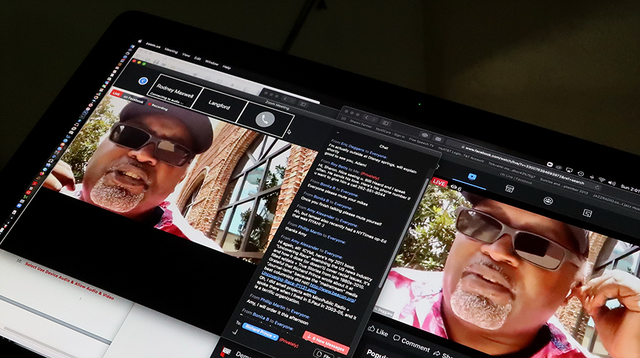
For independent filmmakers, it has meant an escalation in costs, said Leslie Fields-Cruz, executive director of Black Public Media, which represents those creators.
“Filmmakers are getting really creative, they’re doing interviews using Zoom, they’re finding ways to come together, but when you start talking about all of the new procedures and steps you’re going to take . . . when I think about the independent film community, the costs for them are going to go up exponentially . . . the pandemic and the impact of the pandemic is really going to impact the content pipeline, the content coming from our independent filmmakers. . . .””
Fields-Cruz also said that those filmmakers deserve more attention. “There is a lot of coverage of Hollywood, but there’s so much other content that’s being made. Our younger audiences are watching content — they’re not watching regular television. They’re watching content online, TicTok, Twitter . . . They’re consuming it in a very different way than we do.
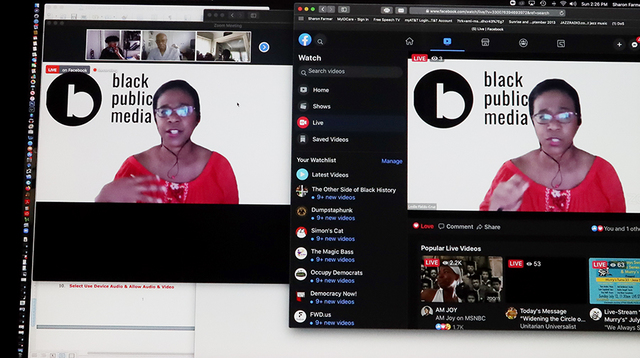
“You mentioned Issa Rae’s outfit, and you know Issa Rae got her start online with ‘Awkward Black Girl”. . . and then all of a sudden, Hollywood took notice because she had all of these people following her. . . and now she’s able to create content — I know she’s got a deal with Netflix, etc., and that’s all fine and dandy, but I think that at this point in time, there’s an opportunity for us to focus on the work that’s not necessarily coming out of Hollywood.
“I know that’s where the money is, but if we’re talking about trying to tell stories that are more expansive of the Black experience and the Black global experience, we’re not going to find those stories in Hollywood. . . . “
Deggans participated in the Zoom call from Disney Springs, an outdoor shopping, dining and entertainment complex at the Walt Disney World Resort in Lake Buena Vista, Fla. He replied, “There are bridges being built between the smaller and more indie-powered projects and organizations and these larger platforms, and I think that is something that should also be encouraged.
“When you look at Diallo Riddle and Bashir Salahuddin, who did both ”Sherman’s Showcase‘ on Comedy Central and ‘Southside,’ you know, they’ve been in the trenches for a long time, and they’ve built up their bona fides until they got to the point’ where they had two shows on two different networks airing on the same day, which I’ve never seen Black creators do.
“I think folks like Lena Waithe and Robin Thede and Issa Rae are all trying to build networks of Black creative people and bring them along so that when Robin does a Black lady sketch show, all the actors, all the writers, all the directors can be Black women, which has never happened before in an industry of sketch comedy on major television.
“So we do, we want to support those indie outlets and we also want to encourage the Establishment to reach down and find the talent. Whenever they say, “Oh, we can’t find a person of color to do XYZ, we can say ‘Hey, we know five people who have done that on indie projects already.’ “
So who are diversity’s Hollywood allies?
“Gloria Calderon Kellett, who’s a showrunner for ‘One Day at a Time,’ that reboot, she’s Cuban American and very clued into diversity issues, very much trying to convince other showrunners to do what she’s done,” Deggans replied.
“Eric Wallace, Black executive producer and showrunner of ‘The Flash,’ someone else who’s very clued into these issues, and is constantly trying to convince the CW and CBS to do better, Shawn Ryan, the white guy who is the co-executive producer of ‘S.W.A.T.’ — he also created ‘The Shield’ — he’s also someone who cares a lot about diversity.
“If you can reach out to these people, and get them on your side, they’re very powerful voices to convince the entertainment establishment to do better.
“To be honest, I think they want to do better. It’s just convincing them to take the bold swings that they have to take to really make a change and they’re just — there’s still a little resistance in pockets of television to doing that. So you’ll have to get allies on your side who will make that case.”
- Nsenga K. Burton Ph.D., National Newspaper Publishers Association: FILM REVIEW — John Lewis: Civil Rights Lion Gets into Good Trouble in Dawn Porter Documentary
- Eric Deggans and others with Jeffrey Brown, “PBS NewsHour”: Hollywood turns scrutiny inward amid national discussion on race and policing
- Meg DeLoatch, Hollywood Reporter: ‘Family Reunion’ Creator Asks: “Was What Happened to My Show Racism?”
- Lisa Respers France, CNN: Issa Rae says the ‘Insecure’ season finale will answer a lot of questions
- Dave Itzkoff, New York Times: What Was the Problem With ‘Wyatt Cenac’s Problem Areas’? (July 8)
- Joshua Johnson, MSNBC: Diversity in Media (on new Joy Reid show) (video)
- Michael Malone, Broadcasting & Cable: NBC Grabs Ava DuVernay Unscripted Series ‘Home Sweet Home’
- Dominic Patten, Deadline: Netflix Loses Move To Axe Mo’Nique’s Sex & Racial Discrimination Suit Over Comedy Special Pay – Update
- Tonya Pendleton, the Grio: Lena Waithe wants more Black TV shows to gain Emmy consideration (July 8)
- Peter White, Deadline: Terrence Howard To Star In & Direct ‘Delta Blues’ TV Drama From ‘Ozark’ Producer Zero Gravity Management (July 17)
Journal-isms Fund Drive Continues

“As a veteran reporter, I turn to Richard Prince’s Journal-isms all the time for the latest information on people of color in our business. There is no spin, no slant, just the facts to keep us informed. I also appreciate that he holds journalists and media companies accountable . . . . Keep up the good work. #NoSpinAllowed” (Courtesy Rebecca Aguilar)
— Rebecca Aguilar, freelance reporter; diversity committee chair, Society of Professional Journalists; former vice president, National Association of Hispanic Journalists.
[btnsx id=”5768″]
Facebook users: “Like” “Richard Prince’s Journal-isms” on Facebook.
Follow Richard Prince on Twitter @princeeditor
Richard Prince’s Journal-isms originates from Washington. It began in print before most of us knew what the internet was, and it would like to be referred to as a “column.” Any views expressed in the column are those of the person or organization quoted and not those of any other entity. Send tips, comments and concerns to Richard Prince at journal-isms-owner@yahoogroups.com
View previous columns (after Feb. 13, 2016).
- Diversity’s Greatest Hits, 2018 (Jan. 4, 2019)
- Book Notes: Is Taking a Knee Really All That? (Dec. 20, 2018)
- Book Notes: Challenging ’45’ and Proudly Telling the Story (Dec. 18, 2018)
- Book Notes: Get Down With the Legends! (Dec. 11, 2018)
- Journalist Richard Prince w/Joe Madison (Sirius XM, April 18, 2018) (podcast)
- Richard Prince (journalist) (Wikipedia entry)
- February 2018 Podcast: Richard “Dick” Prince on the need for newsroom diversity (Gabriel Greschler, Student Press Law Center, Feb. 26, 2018)
- Diversity’s Greatest Hits, 2017 — Where Will They Take Us in the Year Ahead?
- Book Notes: Best Sellers, Uncovered Treasures, Overlooked History (Dec. 19, 2017)
- An advocate for diversity in the media is still pressing for representation, (Courtland Milloy, Washington Post, Nov. 28, 2017)
- Morgan Global Journalism Review: Journal-isms Journeys On (Aug. 31, 2017)
- Diversity’s Greatest Hits, 2016
- Book Notes: 16 Writers Dish About ‘Chelle,’ the First Lady
- Book Notes: From Coretta to Barack, and in Search of the Godfather
- Journal-isms’ Richard Prince Wants Your Ideas (FishbowlDC, Feb. 26, 2016)
- “JOURNAL-ISMS” IS LATEST TO BEAR BRUNT OF INDUSTRY’S ECONOMIC WOES (Feb. 19, 2016)
- Richard Prince with Charlayne Hunter-Gault,“PBS NewsHour,” “What stagnant diversity means for America’s newsrooms” (Dec. 15, 2015)
- Book Notes: Journalists Follow Their Passions
- Book Notes: Journalists Who Rocked Their World
- Book Notes: Hands Up! Read This!
- Book Notes: New Cosby Bio Looks Like a Best-Seller
- Journo-diversity advocate turns attention to Ezra Klein project (Erik Wemple, Washington Post, March 5, 2014)
![]()

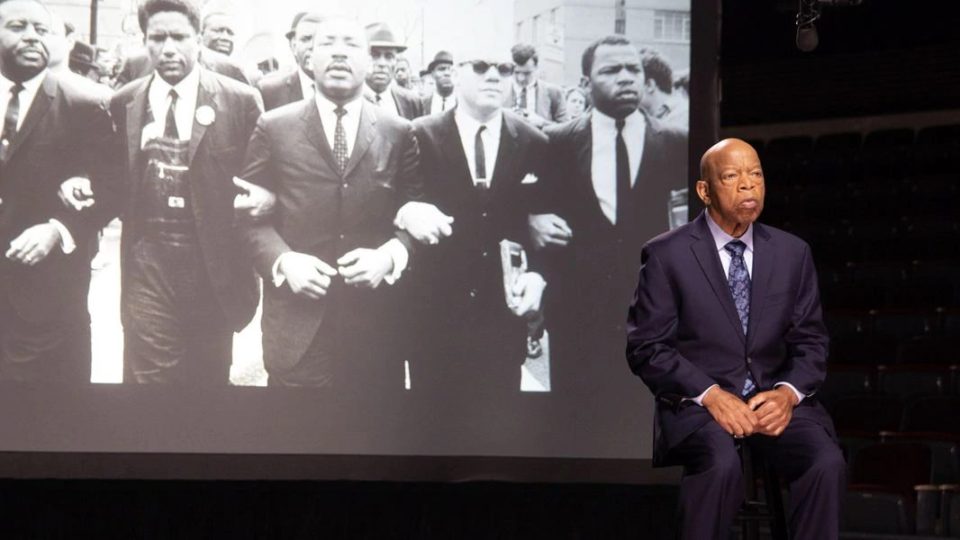
46 comments